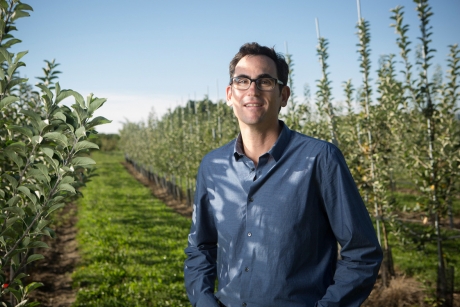
Cornell Chronicle [2016-09-26]
Consumer interest in hard cider in North America has blossomed in the past five years, and apple growers are racing to catch up. Cornell research is revealing ways in which apples grown with specific orchard management practices can produce more desirable hard cider for consumers in this surging market.
Gregory Peck, assistant professor in the Horticulture Section of the School of Integrative Plant Science, found standard orchard conditions for apples grown for consumption – the vast majority of orchards in the U.S. – are very different from the ideal conditions for hard cider apples.
Apples grown for raw consumption are thinned on the trees to a low-crop load, so that each apple grows bigger, juicier and sweeter. But for hard cider, a heavier crop load, with smaller, bitter fruits may be better, according to Peck’s research published in the September issue of HortScience. That’s because the smaller apples have a higher concentration of polyphenols, or tannins, which affect astringency and bitterness in the cider.
In wine production, there’s a body of research on how to influence tannins and flavor compounds, including which varieties to plant, how much sunlight and fertilization to provide, and preferred crop-load density. Peck is trying to apply the lessons learned by winemakers to the budding hard cider industry.


